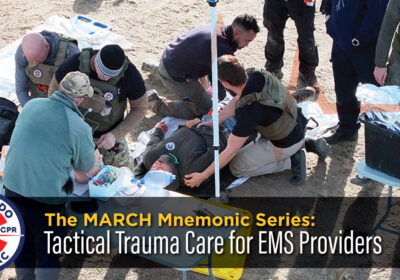Resilience in Times of Change

NEWS YOU CAN USE:
NEWS YOU CAN USE: Welcome to 2025! A new year brings new opportunities, adventures, relationships and challenges for all of us. Stress will happen to everyone! Having emotional and mental resilience during these challenges can positively impact our problem-solving skills, interpersonal communications, as well as the quality of our personal and professional lives.
Resilience is having the capacity to withstand or recover quickly from difficulties. It is the process and outcome of successfully adapting to difficult or challenging life experiences, especially through mental, emotional, and behavioral flexibility, and adjusting to external and internal demands.
Being emotionally resilient is the ability to adjust to change while maintaining good functional capacities. Those with high emotional resilience can bounce back and bend without breaking. It is a skill you develop over time from the lessons you learn as you grow, mature, and face challenges at every stage of life.
What you can do:
If you feel you’ve been tested beyond your limits during the last year, this can push you out of your “window of tolerance” – the resilience zone in which you were used to operating. When you’re forced to operate outside of this zone for too long, it can leave you feeling depleted.
So, what builds resilience? Like building a muscle, increasing your resilience takes time and intentionality. Having confidence in your own ability to cope with the stresses of life can play an important part. Becoming more confident in your own abilities, including your ability to respond to crises, is a great way to build resilience.
How to Build Emotional Resilience:
- Acknowledge the stress
- Break the work into smaller pieces
- Embrace change and flexibility
- Identify your coping strategies
- Practice self-love and nurture yourself
- Start with your thoughts
- Find a sense of purpose by:
- Building a strong social network
- Giving a voice to a social movement
- Leading a healthy lifestyle
- Learning about different cultures
- Making art or music
- Serving your community
- Cultivating your spirituality
- Believe in your abilities
- Elevate your self-esteem
- Be optimistic
- Develop problem-solving skills
- Establish goals
Keep working on your skills! Resilience takes time to build, so don’t get discouraged if you still struggle to cope with problematic events. Everyone can learn to be resilient, and it can vary dramatically from one person to the next.
Focus on practicing your skills, as well as the common characteristics of resilient people, but also remember to build upon your own existing strengths.
QUESTIONS TO ASK YOURSELF:
- How do you deal with setbacks?
- How do you cope with pressure?
- Is this event going to change my life in such a way that a “new normal” will emerge?
- Is it possible that this event might change my life for the better or open new doors for me?
- What aspects of this adversity can I directly control, influence, or leverage?
- What positive emotions could emerge from this event?
Support That Lifts You Up:
It’s one thing to read examples or hear how affirmations can be positively life-changing, and another to personally experience how these affirmations can become a powerful coping tool.
This month, you are challenged to repeat to yourself one of the two following affirmations. Repeat this affirmation every day for 30 days. If it takes 12 seconds, that’s only six minutes out of the 43,200 minutes you have available during those 30 days!
- I give myself permission to do what is right for me. To take time for myself, and to put energy into things that matter to me.
- I focus on what I can control and make peace with what I can’t.
Using resilience affirmations will allow you to become aware of your thought patterns and feelings, which will reduce the risk of negativity taking hold.
You can’t change what happens to you, but you can change how you respond to it. Incorporating affirmations may not erase stress, but it will help you get through it and bounce forward more easily. There will always be more challenges, but affirmations have the power to motivate you to take steps towards achieving emotional and mental resilience.
MOTIVATIONAL THOUGHT:
In our most difficult moments, we are given an opportunity to reset and determine who we are or want to be. You alone shape your life. FIRST AID AWARENESS: October is Fire Prevention Month! Install a smoke detector in your home and if you already have one, change the batteries.RESOURCES:
Call or text: 988 for your mental health questions/emergencies
Call: 911 for an emergency involving police, fire or ambulance
Call: 1-800-222-1222 (Poison Control Center) for poisonings or drug reactions to food, medications (over-the-counter or supplements), and illegal drugs, insects, domestic or wild animals and marine wildlife.
ADDITIONAL INFORMATION:
- For American Heart Association BLS CPR, First Aid, ACLS, PALS certification training contact our office at 720.639.2623 or visit www.3cpr.org
- For Mental Health First Aid certification or mental health workplace workshops contact: Roxanne at info@3cpr.org.
- For tailored Health and Wellness Lunch-n-Learns or presentations contact: Roxanne at info@3cpr.org.
- When enrolling for a CPR, First Aid, ACLS or PALS class, use the promo code “3CPRBLOG” for a 15% discount on most of our classes!
- Coming soon: Virtual Lunch-n-Learns for those in need of CEC or CEUs. Information can be found on our web page at www.3cpr.org. Our first Lunch-n-Learn session will be “Mental Health Matters”!
BLOG WRITTEN BY:
Sophie Mabry, M.A.,
ACSM Exercise Physiologist, EIM II, Certified Health and Wellness Coach, Sports Nutritionist, Mental Health First Aid Responder, BLS CPR and First Aid Instructor, former EMS professional.
REFERENCES:
- https://www.forbes.com/sites/pauladavislaack/2015/11/09/7-questions-to-help-you-build-your-stress-resilience/?sh=2221d02e2a68
- Building Emotional Resilience at the Workplace. A HealthPartners Case Study. Lloyd,K.D. PhD,LP., Katx A.s. PhD., Pronk N.P. FACSM, FAWHP. January 2016. Worksite Health Promotion.
- Building Resilience Into the Workplace. Bending the system to Adapt. Pronk, N.P. PhD, FACSM and Ankel, F.K. M.D., Health and Fitness Journal May/June 2017.
- Mental Toughness and Resiliency. Mondick, L. AKWA October 2019.
Related Posts

The MARCH Mnemonic Series – Tactical Trauma Care for EMS Providers
When seconds count and conditions are unpredictable, the MARCH mnemonic. provides a clear, evidence-based sequence…

Tourniquets: From Controversy to Cornerstone in Bleeding Control
The use of tourniquets has transformed modern trauma care. Once considered a last resort, they…

Altitude Sickness: What First Aiders Want You to Know Before Visiting Denver
Denver, Colorado, is famous for its sunshine, mountain views, and “Mile High City” nickname. But…
